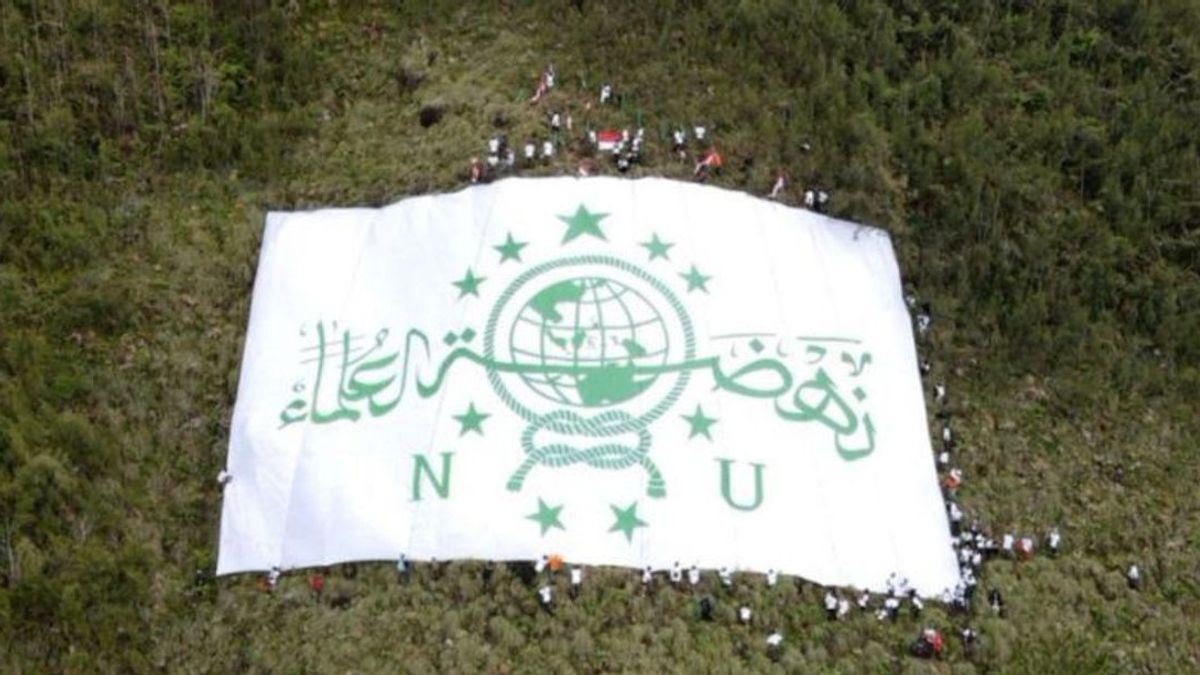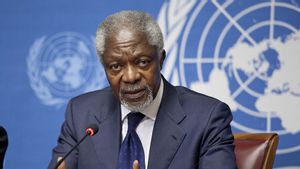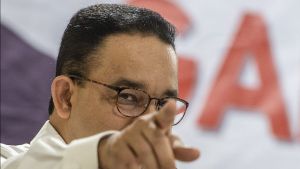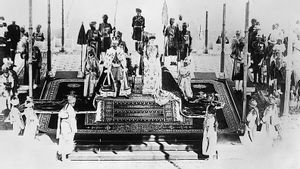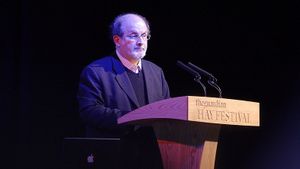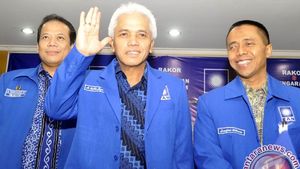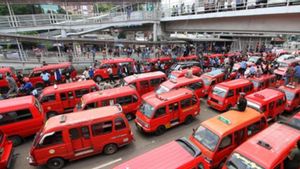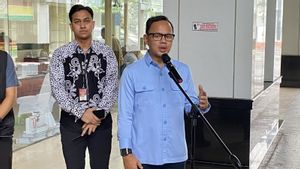JAKARTA - Existence of opposition groups is often needed in the life of the state. In Indonesia, especially. Opposition groups can reduce the monopoly of power in the style of the wrong government. This role was well preserved by Islamic organizations, Nahdlatul Ulama (NU).
NU's Nyali chose a position opposite Suharto and the New Order (Orba) there is no need to doubt. All kinds of New Order policies that interfere with the benefit of the Indonesian people are against them desperately. From the selection of power to eviction.
The relationship between the rulers and the opposition is absolutely necessary. The position of the two is equally noble in a state life. Opposition can perpetuate its function as a government guard from the monopoly of power. The goal is that the government can exercise its power in the correct corridor.
This portrait was once applied by NU. Islamic organizations often choose opposite positions with the government in the New Order era. NU cannot work with the narrative as long as you are happy (ABS). They often perpetuate criticism of various government policies. Mainly those who have the content of suffering the Indonesian people.
NU likes to understand that their guts to become opposition are full of consequences. Everything is proven when the New Order feels the political path of religious groups such as NU must be reduced. The large Nahdlatul Ulama (NU) party was forced by the New Order to join other small parties to become part of the United Development Party (PPP) in 1973.
NU was not afraid. Moreover, the NU representative with the PPP robe is often perched as a representative of the people. The resistance to the New Order regime continues. Instead of weakening resistance, the criticism thrown by NU is getting tougher. NU began to condemn the New Order's actions that wanted to shake up or regulate Muslims.
NU dared to walk out (out) in the middle of the DPR trial when discussions began to disturb Muslims. Among others in 1978 and 1980. They do not want to pass rules that are contrary to Islamic teachings.
This condition made the New Order furious. The political space for NU sympathizers in PPP has begun to be reduced. The power of attorney has begun to take over PPP. New Order also perpetuates the label that NU likes to have an agenda of rejecting the phrase Pancasila in a state life. An New Order flagship study that uses Pancasila to repulse political opponents or opposition groups.
In the early 1980s, the regime forced NU to take a clear choice between opposition or accommodation. In a harsh speech in 1980, Suharto attacked all groups in the country who seemed hostile to Pancasila (the New Order version) and instead adhered to rival ideologies, such as communism, marhaenism, or religion and he threatened to bring down the military to beat them.
This Pidato is clearly addressed to the action of the outNUwalk, as a warning that there is no more tolerance for resistance to the official ideology. In the following years, Suharto repeatedly repeated the theme of the same conversation: loyalty to ideologies other than Pancasila is the same as subversion actions," explained Ahmad Muhajir in the book Idham Chalid: NU's Political Teacher (2007).
NU's struggle to become an opposition is not only perpetuated in defending religion. NU also often perpetuates its support for the lives of many people. NU is able to stand above all groups with the phrase humanity.
Whoever disturbs the benefit of the Indonesian people, NU is ready to stand against it. All of this was perpetuated in order to build social justice and democracy. Despite opposition to the New Order.
Take, for example, when the General Chairperson of the Nahdlatul Ulama (PBNU) Executive Board for the 1984-1999 period, Abdurrahman Wahid (Gus Dur) defended the victims of the stategis project of the Kedung Ombo Reservoir in the 1980s.
Gus Dur and NU were not afraid to throw open criticism of the policies of the ruling regime. Criticism is perpetuated using two spaces at once. Public space and mass media. NU also gave its support to other activists who also refused.
Moreover, in the case of Kedung Ombo Orba, it was described as unfair in land acquisition in three districts (Boyolali, Grobogan, Sragen). The opposition to the New Order continued until Suharto and New Order stood on the brink of power in 1998.
A series of NU scholars also asked Suharto to resign from his position. Because, if Suharto continues to force power that appears, it will no longer be beneficial, but disadvantaged. NU's courage to take a position opposite the New Order is then remembered as an important 'ornament' in the history of the Indonesian nation.
SEE ALSO:
For example, Gus Dur spoke out loud in his criticism of how the local government handled the controversy over the Kedung Ombo reservoir project in Central Java funded by the World Bank. He also strongly defended the ethnic and religious minorities in Indonesia. However, he also struggled to maintain good relations with the president.
Initially, this constructive approach was of good value and Suharto seemed to welcome a number of Gus Dur's initiatives. Ahead of the 1987 election, Gus Dur became increasingly critical of PPP, which is now dominated by many modernists. As a result, he received the anger of many conservatives in NU, who regretted the exit of this religious organization from PPP, and instead has done a lot to strengthen his good relationship with Suharto," concluded Greg Burton in Gus Dur's book Biography (2013).
The English, Chinese, Japanese, Arabic, and French versions are automatically generated by the AI. So there may still be inaccuracies in translating, please always see Indonesian as our main language. (system supported by DigitalSiber.id)
